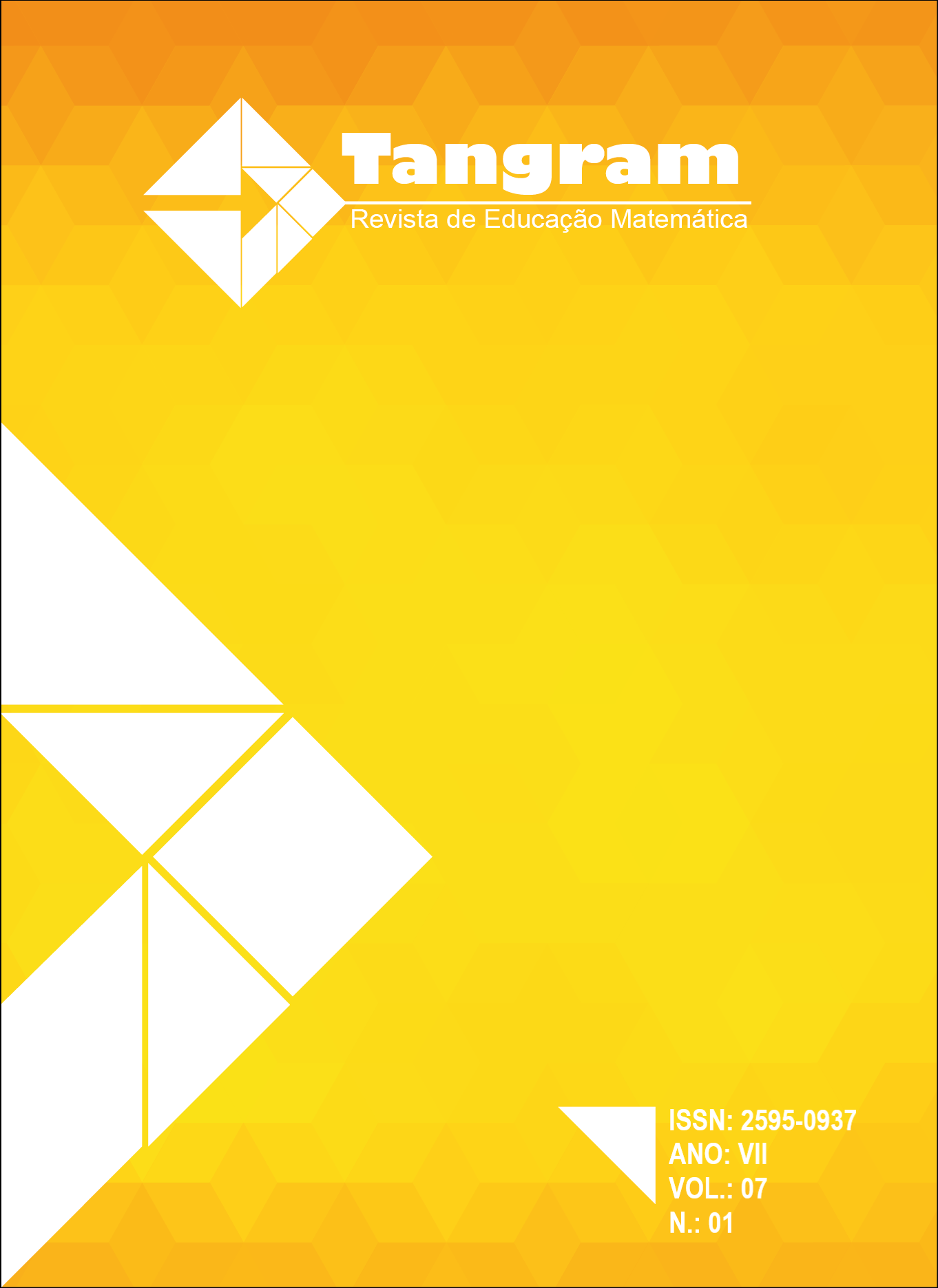Outdoor arithmetic with 5-year-olds
DOI:
https://doi.org/10.30612/tangram.v7i1.17793Keywords:
Outdoor Model, Arithmetic, Additive problemsAbstract
Outdoor kindergartens are an educational model that has been implemented with great success in Central and Northern Europe, the United States and Asia. This model uses manipulative materials and encourages interest and curiosity in nature. This paper presents a didactic proposal aimed at 5-year-old pupils in a Spanish school and focused on solving the additive problems of a stage in an outdoor context. The sample is made up of 23 children who are in a pre-operational stage, are able to count a minimum of 20 objects establishing a one-to-one correspondence and are at a stage of evolution of attention capacity. The proposal consisted of 6 sessions, in which transformation, combination and comparison problems were worked on. Among the results were how the students solved the problems more easily through manipulation and a different environment than in their usual classes. Also, children who showed lower logical-mathematical skills were able to solve the problems by counting all the elements, while other children with a higher cognitive level used a wider variety of techniques
Downloads
References
Alsina, Á. (2012). Más allá de los contenidos, los procesos matemáticos en Educación Infantil. Edma 0-6: Educación Matemática en la infancia, 1(1), 1-14. https://doi.org/10.24197/edmain.1.2012.1-14.
Arce, M., Arnal-Palacián, M., Conejo, L., García-Alonso, I., & Méndez-Coca, M. (2022). Matemáticas transversales. Aportaciones al desarrollo del currículo desde la Investigación en educación matemática (pp. 453-479). Ed. Universidad de Granada.
Blanco, L. J., Cárdenas, J. A., & Caballero, A. (2015). La resolución de problemas de Matemáticas en la formación inicial de profesores de Primaria. Universidad de Extremadura.
Bruchner, P. (2012). Escuelas infantiles al aire libre. Cuadernos de pedagogía, 420, 26-29.
Castro, E., Olmo, M. Á. D., & Castro, E. (2002). Desarrollo del pensamiento matemático infantil. Universidad de Granada.
Cid, E., Godino, J., & Batanero, C. (2013). Sistemas numéricos y su didáctica para maestros. Universidad de Granada.
Fournie, E. (1928). Las escuelas al aire libre desde el punto de vista pedagógico. Boletín de la Institución Libre de Enseñanza, 814, 33-37.
Freire, H. (2011). Educar en verde. Ideas para acercar a los niños y niñas a la naturaleza. Barcelona: Graó.
Llorent-Bedmar, V., & Sianes-Bautista, A. (2014). Del “waldkindergarten” alemán a la innovadora “bosquescuela” española. IV Jornadas de Innovación Docente. Abriendo caminos para la mejora educativa.
Ludwig, M., & Jablonski, S. (2019). Haciendo matemáticas al aire libre con MathCityMap. Jornadas para el Aprendizaje y la Enseñanza de las Matemáticas (19JAEM), 3.
Miklitz, I. (2000). Der Waldkindergarten. Dimensionen eines pädagogischen Ansatzes. Neuwied, Berlín: Luchterhand Verlag.
Ochoa, V., & Alexander, J. (2015). Modelación matemática a partir de problemas de enunciados verbales: un estudio de caso con profesores de matemáticas. Magis. Revista Internacional de Investigación en Educación, 8(16),133-148. https://doi.org/10.11144/Javeriana.m8-16.mmpe.
Rodríguez-Ocaña, E. (1992). Paz, trabajo, higiene. Medicina social y movimiento obrero en España ss. XIX y XX. Madrid.
Vásquez, C., Alsina, Á., Seckel, M. J., & García-Alonso, I. (2023). Integrating sustainability in mathematics education and statistics education: A systematic review. EURASIA Journal of Mathematics, Science and Technology Education, 19(11), em2357. https://doi.org/10.29333/ejmste/13809.
Zotes, E., & Arnal-Palacián, M. (2022). Matemáticas en Educación Infantil: una mirada al aprendizaje de las magnitudes desde el desarrollo sostenible. Educación matemática, 34(1), 306-334. https://doi.org/10.24844/EM3401.11.
Downloads
Published
How to Cite
Issue
Section
License

This work is licensed under a Creative Commons Attribution-NonCommercial-ShareAlike 3.0 Unported License.
Authors must accept the publication rules when submitting the journal, as well as agree to the following terms:
(a) The Editorial Board reserves the right to make changes to the Portuguese language in the originals to maintain the cultured standard of the language, while respecting the style of the authors.
(b) Authors retain the copyright and grant the journal the right to first publication, with the work simultaneously licensed under the Attribution-NonCommercial-ShareAlike 3.0 Brazil (CC BY-NC-SA 3.0 BR) that allows: Share - copy and redistribute the material in any medium or format and Adapt - remix, transform, and create from the material. CC BY-NC-SA 3.0 BR considers the following terms:
- Attribution - You must give the appropriate credit, provide a link to the license and indicate whether changes have been made. You must do so under any reasonable circumstances, but in no way that would suggest that the licensor supports you or your use.
- NonCommercial - You may not use the material for commercial purposes.
- Sharing - If you remix, transform, or create from material, you must distribute your contributions under the same license as the original.
- No additional restrictions - You may not apply legal terms or technological measures that legally restrict others from doing anything that the license permits.
(c) After publication, authors are allowed and encouraged to publish and distribute their work online - in institutional repositories, personal page, social network or other scientific dissemination sites, as long as the publication is not for commercial purposes.






